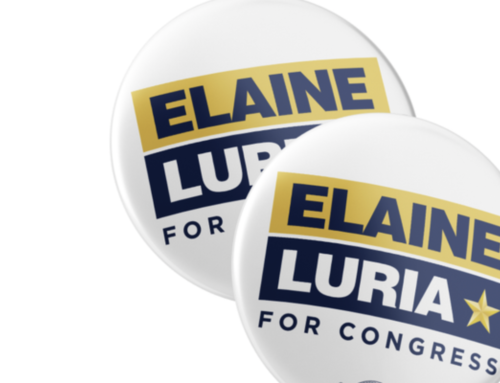By Gail Helt
This article originally appeared in artsforum.ca on
America is in decline. It is hard to pin down exactly when this decline began, but our social fabric is unraveling. The American
experiment has succeeded because it is rooted in a social contract between the governed and those who govern. But that contract has always been based on trust. We don’t trust each other anymore. How has the nation that won two world wars, sent men to the Moon, and created the liberal international order that has brought relative peace and prosperity to the world – all of which required Americans to work together and trust each other – gotten to this place?
The cause is debatable. Maybe it stems from the 1970s, when Watergate, the Pentagon Papers, and the Church Committee hearings in the U.S. Senate tested our trust in government. Maybe the distrust is rooted in the lies about ‘weapons of mass destruction’ (or ‘WMD’) that led Americans to war in Iraq, or the documented reports several years later revealing that our government had embraced torture as a tool of counterterrorism policy. It is hard to deny that, for some, the loss of a sense that we are in this together happened with the election of our first black president, Barack Obama, when it became apparent that we were not a post-racial society and that a sizable number of us could not accept, much less trust, a black man in the White House. Those same individuals are largely responsible for the election of Donald Trump, a man who has spent the last four years pulling at the threads of our already unraveling social fabric, until it may be impossible to weave it back together.
What does decline – this unraveling, if you will – look like? The primary element of our social contract is elections. Americans go to the polls every two or four years (and, in some states, more often) to cast ballots for candidates we trust to represent us. We do this, year after year, because we trust the process. Or, at least, we did. Never before has an American president (and his supporters in the media) engaged in a campaign meant to undermine our faith in our electoral process. For example, when considering how to protect the constitutional rights of American citizens to participate in the 2020 election during a pandemic, President Trump immediately dismissed the idea of mail-in ballots, claiming this could guarantee electoral fraud. He alleged that Democrats were pushing the idea to steal the election. He went so far as to claim that “mail boxes will be robbed” by people looking to forge signatures on ballots.(1) Pro-Trump media personality Tucker Carlson falsely claimed in April that expanding citizens’ ability to vote by mail would allow them to request and print ballots online, destroying our faith in the fairness of the election.(2)
What purpose does rhetoric like this serve? It raises questions in the minds of Americans about the legitimacy of their electoral process, and the abject refusal to explore mail-in voting options serves to suppress the vote in one of the most heated elections in our collective memory, which will, in turn, cause Americans to question its outcome. If we cannot trust our electoral process, we cannot trust our government. This distrust has divided us along party lines in ways America has rarely been divided before. When that happens, we stop talking to each other, we stop trusting each other, and eventually we cannot trust our government. Without that trust, our government cannot function, because elected officials become so worried about losing support over a single legislative vote that the president can cite to tag them as disloyal, that they cannot compromise on even the most urgent legislation.
This is currently playing out over the COVID-19 crisis, as states consider how to reopen safely, and governors are mocked for mandating the use of masks in public places. President Trump has referred to the COVID pandemic as a hoax invented by Democrats, and refuses to wear a mask; so his supporters have rushed to embrace that twisted logic, arguing against phased reopening and wearing masks and accusing those who prefer to be more cautious of wanting to damage Trump’s presidency. Read any comment section under newspaper articles about the pandemic and the need to continue to socially distance, and you will read dozens of people claiming that COVID will immediately disappear after November’s presidential election – i.e. that Democrats are using COVID as a political tool. We have become so cynical about each others’ intentions that we rush to assume the worst about people who simply want to protect themselves and their neighbors from a virus that in many cases has horrific outcomes.
Beyond this, the concerted effort from the White House to undermine our faith in our democratic institutions is yet another means to weaken the fabric of our society. Sadly, our country is now one where the president and his supporters denigrate the national security professionals whose depth of expertise have guided us through the Cold War, helping us avoid nuclear war with the Soviet Union and limiting Soviet expansion. These careerists across government developed and implemented the Bretton Woods agreement, which led to the longest period of peace (i.e. no great power war) and prosperity which the world has seen in hundreds of years. They have helped us avoid another 9/11, ended the reign of terror of Osama bin Laden, and disrupted terrorist organizations. They work long hours at significant personal cost so they can warn of missile launches, border incursions by hostile nations into allied territory, pandemics in Asia or Africa, political instability in Latin America, and countless other national security concerns.
Yet, the President routinely demeans these patriotic men and women, calling them the “deep state” and implying they are part of some shadowy cabal that works to thwart his every move. Trump’s remark in Finland in 2017, when he openly sided with Russian President Vladimir Putin over his own intelligence community (‘IC’) in regard to Russian interference in the 2016 election comes to mind. Standing next to a representative from a country that would love to weaken us, and siding with that enemy, sent a message to supporters that they should be suspicious of their own intelligence agencies. Further, Trump seems to instinctively understand that his national security apparatus has the ability to undermine his own personal agenda simply by conveying facts to the public; so, it must be kept from doing so. This is why he refused to allow intelligence officials to give a public global threat briefing to Congress earlier this year, despite the precedent of this annual event. In 2019, for example, CIA officials’ testimony on Iran and North Korea contradicted Trump’s claim that they were, and were not, respectively, a threat – hindering Trump’s ability to pursue his hard-line agenda on Iran, and his appeasement of North Korea. What happens when the IC warns, say, of Russian aggression against Poland or Latvia? Or that a reconstituted ISIS has emerged and is threatening U.S. interests in the Middle East? Or, of the next pandemic? Will Americans believe it? Will that president be able to persuade the American public that action is needed, or will we dismiss such warnings out of hand, as “deep state” efforts to carry out some globalist agenda?
Trump launched a rhetorical war against former CIA Director John Brennan, a staunch critic, threatening to revoke his security clearance, which Trump falsely implied was used to access classified information he would then leak to MSNBC, where Brennan works as a consultant. This move was so unprecedented that approximately 200 former national security personnel signed an open letter criticizing Trump’s action, citing free speech concerns and fears that his action would constrain current IC members who might be reluctant to fulfill their mandate of speaking truth to power out of fear their own clearance could be pulled, ending their careers. (Full disclosure: I was a signatory to that letter.) Trump’s attacks on the IC as a “deep state” that is out to get him undermines the public trust in the intelligence community that is charged with keeping America safe, prompting Americans to view the IC, and much of government, with distrust.
Another of these democratic institutions is a free press. A free press is the lynchpin of democracy – without it, government abuses will go unreported, elected officials will act with impunity, and corruption will abound. Yet many distrust the media, simply because the president has condemned much of it “fake news.” Many Americans discount even obviously accurate reporting, events we can see with our own eyes, because it comes from a source that has criticized Trump. For example, we were asked to dismiss live video footage of the National Guard using force to remove peaceful protesters from the street in front of St. John’s Episcopal Church in Washington, D.C., simply because Trump denied that force was used. We were then asked to believe those same peaceful protesters were in fact rioters, and that the government had no choice other than to remove them by force. And Trump supporters buy this, denying what they saw with their own eyes, and calling those who are unwilling to dismiss such images ‘unpatriotic,’ ‘haters,’ ‘leftists,’ or ‘anarchists.’ Trump makes clear his expectation that supporters will believe him – after all, he once said he could shoot a man on Fifth Avenue and not lose support – and they always do. Supporters eat these lies up, because they confirm what they themselves desperately want to believe: that the media is out to get Trump, and without Trump they have no voice, because they cannot bring themselves to trust the rest of us.
Where do we go from here? Do we have the will to chart another course? Can we mend what Trump has rendered? The truth is: we have no choice, if we want this American experiment to continue. The next president will have to find a way to unite this nation and be the leader Trump has proven he cannot be. Reversing our decline is necessary to resuming American leadership in the world, and repairing the social fabric of our nation is the first step toward that reversal. Much is at stake here. If Americans remain divided over the intentions of our own government, over the legitimacy of our elections, or over the integrity of our institutions, we will never lead again. Leadership requires national will, and coalescing behind a national agenda. Our weakening social fabric has allowed nations like China, whose malign intentions are evident, to seize this moment to exert hegemony, edging us out of Asia and relegating billions to the whims of authoritarian leaders who seek Beijing’s aid, which comes without strings attached. It is not just the American experiment that is at stake; the future of freedom is as well.
Gail Helt directs the Security and Intelligence Program at King University in Tennessee. She spent nearly a dozen years as an analyst at the CIA, where she developed expertise in Asian security issues, politics, leadership, and governance; while there, she authored briefings for senior policymakers, including the President of the United States. Her academic research interests include democratization, the decline of U.S. influence around the world, and Asian politics.
Copyright © 2020 by Gail Helt. Illustration copyright © 2020 by Linda Arkelian.
Foonotes:
(1) @realdonaldtrump, “There is NO WAY (ZERO!) that Mail-In Ballots will be anything less than substantially fraudulent. Mail boxes will be robbed, ballots will be forged & even illegally printed out & fraudulently signed. The Governor of California is sending Ballots to millions of people, anyone…..” Twitter, 26 May 2020, 8:17a.m.: https://twitter.com/realDonaldTrump/status/1265255835124539392
(2) “Tucker Carlson Tonight,” Media Matters, 14 April 2020: https://www.mediamatters.org/tucker-carlson/tucker-carlson-says-michelle-obamas-vote-mail-campaign-would-destroy-faith-our




